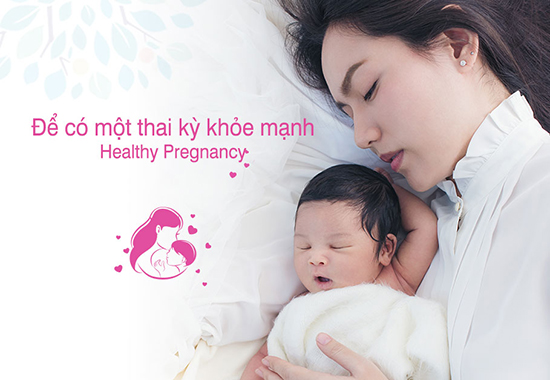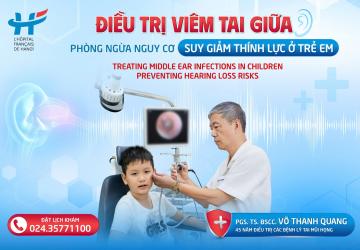Knowledge - Mon, 12/09/2024 - 10:58
Healthy Pregnancy
Last update 12/09/2024 - 11:01

Pregnant or thinking about getting pregnant, here are some tips to ensure for you.
Get a health check. Make sure you are in good shape and have all the jabs to protect your baby. Your MMR and chicken pox jabs should be up to date, or have a blood test checking your immunity status. When contracted during pregnancy they can have severe effects on your baby’s development. It is also recommended to have a seasonal flu jab, as the flu can be dangerous for pregnant women.
You probably know already that it is important to take good care of yourself and not to smoke and drink alcohol. But there are more things to know, so let’s get started.
Start taking vitamins, even before being pregnant. Your baby's neural cord, which becomes the brain and spinal cord, develops within the first month of pregnancy, so it is important you get essential nutrients, like folic acid, calcium, and iron. Sometimes prenatal vitamins can make your tummy upset (that is the iron component), having them with a snack or in the evening can help.
Stay active. Exercise is good for your overall health and can help you control your weight, improve your mood and help you to sleep better.
Yoga, swimming and walking are great activities for most pregnant ladies. Aim for light to moderate exercise about 30 minutes of most days. Make sure you practice indoors so you are not exposed to heat, sun and pollution.
Ask your doctors if it is safe for you to exercise.
Discuss your childbirth plans. Do you want a natural birth or do you prefer a cesarean section? What about pain control, do you want that epidural to make delivery as smooth as possible? A lot of this will depend whether you have had a delivery before and of course there may be some last minute changes. Discuss your preferred options with your doctor, he will be able to explain and advise. It is also important to tell your doctor what you do not want to happen, in case not everything goes as planned.
Antenatal class. Even if you have already had a baby, attending an antenatal class is always a good idea. You will be able to ask questions and learn everything you need to know about childbirth and taking care of your newborn.
Delegate household tasks. Avoid exposure to chemicals such as household cleaners, they can be dangerous for your baby. Don’t lift heavy objects. Avoid bacteria, use gloves if you have to handle raw meat and wash hands thoroughly afterwards. Stay away from the cat litter. Cats can carry Toxoplasmosis which can be extremely harmful for your baby.
Watch what you eat. In addition to drinking plenty of water, eat five or six well-balanced smaller meals containing lots of nutrients and folic acid. Leave greens, broccoli, asparagus, citrus fruits, bananas, papaya, avocado, legumes such as lentils and beans, eggs, milk, and liver are all very rich in folate. Eat more fish and seafood; fish is high in omega 3s, a nutrient critical to brain development.
Make sure you cook your eggs, meat and fish through properly as raw food can contain harmful bacteria. Also avoid unpasteurized milk and cheeses such as camembert, brie and blue cheese, and dry cured or smoked cold cuts, like prosciutto. Do not take supplements or traditional herbal remedies without first consulting your obstetrician or midwife, they may cause uterine contractions.
Finally, we know you are eating for two, but it is important to watch your weight gain.
How much weight should I gain?
Weight gain in pregnancy varies greatly. Most pregnant women gain between 10kg and 12.5kg, putting on most of after week 20. The extra weight is due to your baby growing, but your body will also be storing fat, ready to make breast milk after your baby is born. Putting on too much or too little weight can lead to health problems
Putting on too much weight can increase your risk of complications. These include:
- gestational diabetes: too much sugar in your blood during pregnancy can cause gestational diabetes, which increases your risk of having a large baby
- pre-eclampsia: a rise in blood pressure can be the first sign of pre-eclampsia; although most cases are mild, it can be serious
Gaining too little weight
Gaining too little weight can cause premature birth and a baby with a low birth weight (less than 2.5kg at birth). Lack of weight gain can be related to your diet and weight before you become pregnant.
Go Shoe Shopping
As your bump grows, so are your feet. Your natural weight gain throws off your center of gravity, putting extra pressure on your tootsies and flattening your feet. You may retain fluids, which can make your feet and ankles swell. So it is important to wear comfortable, no restricting shoes when you are pregnant. And be sure to put your feet up several times a day to prevent fatigue and swelling of the feet, legs, and ankles.
Wear Sunscreen
Being pregnant makes your skin more sensitive to sunlight, and you are more prone to sunburn and dark, blotchy spots developping on the face, called chloasma. Apply a sunscreen with an SPF of 30 or higher and wear a hat and sunglasses when outdoors.
Know When to Call the Doctor
Being pregnant can be confusing, especially if it is your first time. How do you know which symptom is normal and which one is not? Call your doctor immediately if you have any of these symptoms:
- Pain of any kind
- Strong cramps
- Contractions at 20-minute intervals
- Vaginal bleeding or leaking of fluid
- Dizziness or fainting
- Shortness of breath
- Heart palpitations
- Constant nausea and vomiting
- Trouble walking, edema (swelling of joints)
- Decreased baby activity



